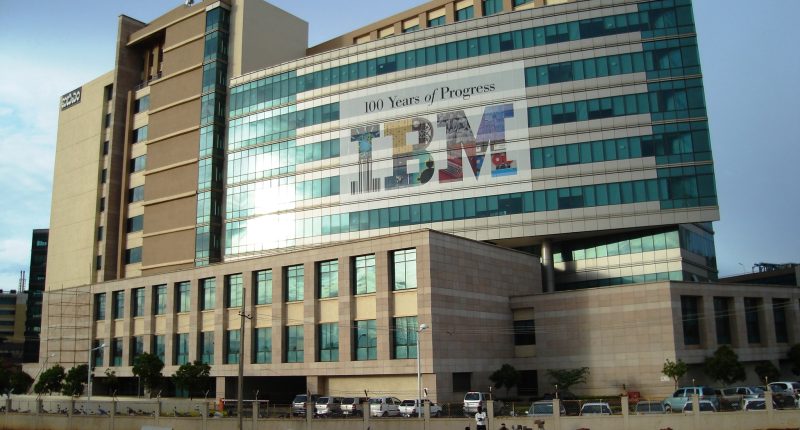Global computing giant IBM has announced plans to invest $150 billion in the United States over the next five years. A significant portion of this investment – over $30 billion – is dedicated to expanding the company’s manufacturing facilities, particularly focusing on quantum computers and mainframes. Notably, these systems are integral to handling vast amounts of data and are crucial for critical operations across various sectors.
Overall, this notable investment aims to strengthen the United States’s capabilities in quantum computing, mainframe systems, and artificial intelligence (AI). Additionally, the move also aligns with the current administration’s push for increased domestic production.
Once again, as has been the case with most multi billion announcements by tech behemoths, IBM’s announcement focuses heavily on quantum computing. The tech giant operates one of the world’s largest fleets of quantum systems, which promise computational power far exceeding that of traditional computers. Although the timeline for practical applications of quantum technology remains a topic of debate.
According to the company, its Poughkeepsie (New York) plant is set to become a central hub for this latest expansion, strengthening its role in producing state-of-the-art computing systems. Along with hardware, IBM is also investing in the future of artificial intelligence (AI). Earlier in 2023, the company launched a $500 million venture fund aimed at accelerating generative AI technology and research for enterprises. This fund will invest in AI companies across various stages.
“We have been focused on American jobs and manufacturing since our founding 114 years ago, and with this investment and manufacturing commitment we are ensuring that IBM remains the epicenter of the world’s most advanced computing and AI capabilities,” Arvind Krishna (IBM chairman) said in his statement.
However, despite all these efforts, the road still does not seem smooth for the company, as it is already facing several challenges. Earlier this month, IBM witnessed the cancellation of 15 US federal contracts (totalling around $100 million) due to budget cuts initiated by the Elon Musk-led Department of Government Efficiency (DOGE). Although these cancellations represented less than 1% of IBM’s consulting backlog, they led to a significant drop in the company’s stock price. Additionally, a $95 million cybersecurity contract with USAID was terminated as part of broader reductions in foreign aid programs.
On the legal front, the U.S. Department of Labor supported IBM retirees’ appeal (who alleged the company underpaid pensions using outdated mortality tables) in August 2024, after it was previously dismissed by a federal judge citing missed filing deadlines. Even in March 2025, the Second Circuit Court of Appeals revived this lawsuit, with a decision yet to be made.
Meanwhile, talking about the rise in investment efforts in the US, IBM is not alone in this trend. Companies like Apple and Nvidia have pledged substantial amounts ($500 billion each) to expand their operations within the country. Additionally, companies like Intel have committed $20 billion to build semiconductor manufacturing plants, while Tesla has been ramping up investments in electric vehicle production, pledging over $10 billion to expand its factories. E-commerce major Amazon is also investing heavily in renewable energy projects, committing to $15 billion in sustainable energy investments by 2025.
The Tech Portal is published by Blue Box Media Private Limited. Our investors have no influence over our reporting. Read our full Ownership and Funding Disclosure →






